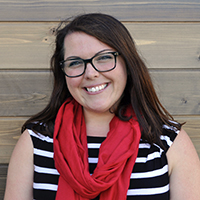What Are Commuter Success Pathways?
San Diego State University offers a variety of Commuter Success Pathways for incoming first-year students.
All first-year commuter students are enrolled in a 1-unit University Seminar course designed to connect you academically and socially to the campus community. To further ensure your success, SDSU offers a variety of Commuter Success Pathways with the goal that incoming first-year students will:
- Build relationships with peers, faculty, and staff
- Feel a sense of belonging on campus
- Become part of a small community of students with common academic or social interests
- Receive academic support
- Use knowledge from one course and apply it more deeply in another
Students who enroll in a Student Success Pathway in their first semester tend to:
- Have higher GPAs and lower instances of academic probation
- Have confidence in their academic work
- Achieve a deeper understanding of course material
- Have higher satisfaction with campus life
Commuter Success Pathways:
1. UNIVERSITY SEMINAR (1 UNIT)
All incoming first-year students are enrolled in a university seminar course that is designed to support your success at SDSU. Most courses are small cohorts of. In many cases, the seminar is focused on a specific topic or theme like Leadership, Women’s & Gender Equity, LGBTQ+ Pride or Community Service.
For example:
» General Studies 100A- University Seminar Commuter Student Success (1 unit)
» Engineering 101- Engineering Orientation & Career Exploration (1 unit)
» Business Administration 100- Exploration of Business (1 unit)
2. COMMUTER LEARNING COMMUNITIES (5 UNITS)
A Learning Community is a small group of students who attend a set of courses and/or experiences together. It includes a General Education (GE) course, that usually relates to the student’s major, and a discussion/analysis 1-unit course led by a graduate teaching associate who specializes in that subject matter. Benefits include: establishing a supportive peer group, course content that helps students’ transition to college life by accessing peer and campus resources, an enhanced sense of connection to the campus community and access to high-impact educational practices.
For example:
» Psychology 101 (3 units) +Psychology 296 Discussion/ Analysis (1 unit) + GENS 100B (1 unit)
3. INTEGRATED CURRICULUM (4-7 UNITS)
An Integrated Curriculum Pathway involves a small cohort of students who enroll in one or two required General Education (GE) courses together as a linked community. The Integrated Curriculum Pathway offers a supportive community in order to maximize success. Data shows students often do better in both courses.
For example:
» Rhetoric & Writing Studies 100 (3 units) + Political Science 101 (3 units) + General Studies 100B (1 unit)
» Rhetoric & Writing Studies 100 (3 units) + ARP 205 Exploring Leadership (3 units) + General Studies 100B (1 unit)
4. COMMUNITY CENTERS (1-7 UNITS)
The SDSU Community Centers offer the following learning communities: APIDA, COMUNIDAD Latinx, DREAMer, Elymash Yuuchaap Indigenous Scholars and Leaders, Henrietta Goodwin, Young Men of Color Alliance, Pride House, Women and Gender Equity Learning Community. These community centers and their respective learning communities support student success through a framework that addresses equity, justice, and inclusion.
